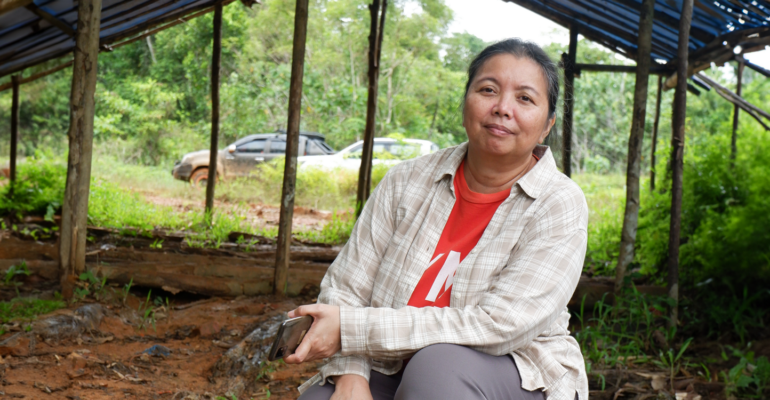GO ARK, Collaboration between IPB University Scientists and Citizens for Amphibian and Reptile Conservation in Indonesia

Through the Press Conference Pre Scientific Oration of IPB University Professor, IPB University Professor from the Faculty of Forestry and Environment (Fahutan), Prof Mirza Dikari Kusrini introduced the Our Amphibian Reptile Observation Movement (GO ARK) as an effort to mainstream amphibian and reptile conservation in Indonesia.
“This activity encourages collaboration between scientists and communities, and provides an opportunity for volunteers to meet and share knowledge. Despite the challenges, citizen science is effective in collecting large-scale data by involving the community,” he said.
Prof Mirza said that until June 3, 2024, GO ARK had recorded 30,163 data, most of which came from Java and Bali. The results of this activity succeeded in collecting data faster and more than the data stored in the museum, although the quality of the data must be maintained through training and validation.
“GO ARK has also reported the presence of foreign species that have the potential to become invasive, detected species with higher presence than before, or species that have not been described but not monitored before,” he said.
Prof Mirza said that the urban species that is currently commonly found is the garden chameleon Calotes versicolor, which was only recorded at the Zoologicum Bogoriense Museum starting in 2010 from specimens around Cibinong.
He said that C versicolor is one of the top three reptiles recorded by volunteers in Java.
“One of the important findings of the Amphibians Reptiles Kita (ARK) project was the report of an undescribed rhacophorid frog in Leuweung Sancang Nature Reserve in West Java. In cases like this, citizen science acts as an initial observation that informs the possibility of undescribed species in a particular location,” he said.
Furthermore, Prof Mirza explained that there are currently 106 species of amphibians and 181 reptiles in Indonesia that have a Data Deficient (DD) threat status based on the red list.
DD status indicates that the information available about a species is insufficient to assess its extinction risk.
“Species categorized as DD may face serious threats that are undetected or undocumented. DD status makes it difficult for policy makers and conservation organizations to prioritize their resources,” he explained.
Prof Mirza said that to improve data quality and the capacity of young herpetologists, GO ARK has conducted training by professional herpetologists. The training covers application usage, species identification, and animal handling. (dr/Rz) (IAAS/EXC)



